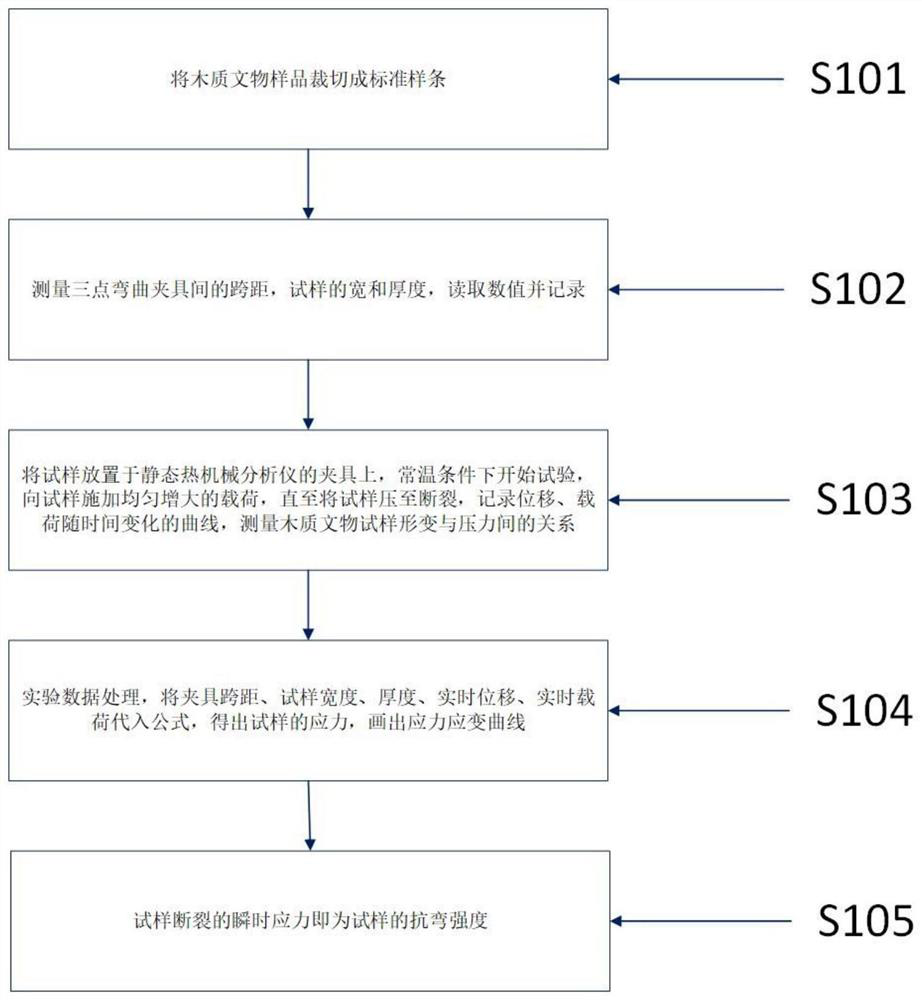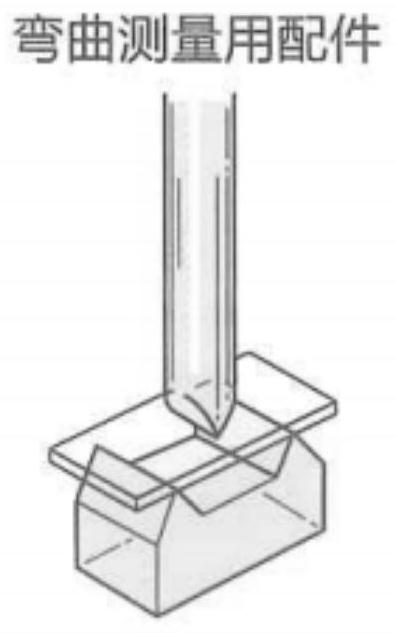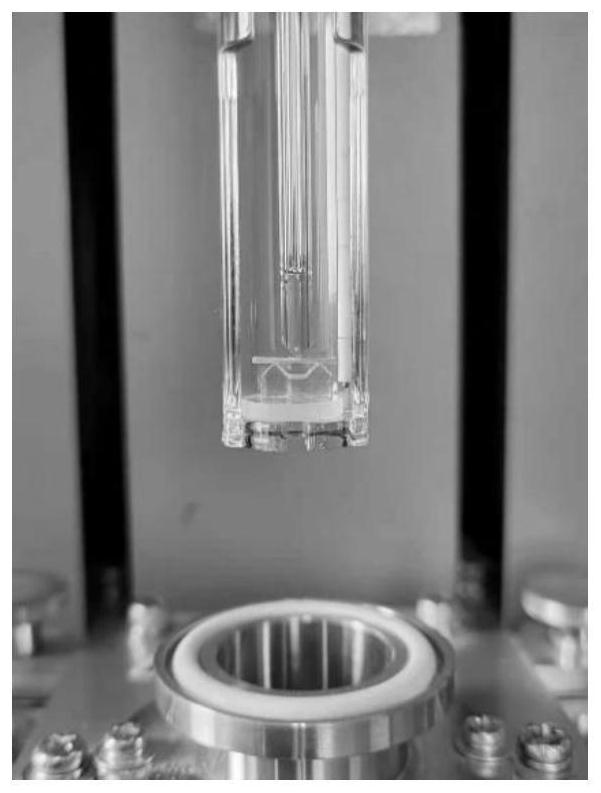A method for micro-destructive testing of flexural strength of fragile wooden cultural relics
A technology for flexural strength and wood, which is applied in the field of micro-damage testing of the flexural strength of fragile wooden cultural relics, which can solve the problems that it is difficult to apply decayed archaeological wood, the load of the test instrument is large, and the sample volume is large, so as to achieve high sensitivity and accuracy , Simple sample preparation, high precision effect
- Summary
- Abstract
- Description
- Claims
- Application Information
AI Technical Summary
Problems solved by technology
Method used
Image
Examples
Embodiment 1
[0052] The bending strength of the "Nanhai No. 1" shipwreck scattered wood samples was tested by bending experiments. The wood species is Chinese fir, which is mild to moderate degradation, and the maximum moisture content is 331%. The samples were cut into standard strips (8 mm x 2 mm x 0.3 mm) and dried naturally. Measure the span L of the fixture is 5mm, the width b of the sample is 2.299mm, and the thickness d is 0.244mm; place the wooden strip on the three-point bending fixture, the position is as follows figure 2 shown. Start the test at room temperature, lower the probe, set the initial load to 5mN, and increase it uniformly at 5mN / min. After 30min, the sample breaks, record the change curve of displacement and load with time; L, sample width b, thickness d, real-time displacement D, real-time load P into the formula The stress σ of the specimen is obtained f , sample strain ε f , make a stress-strain curve; the instantaneous stress of the sample fracture is the...
Embodiment 2
[0054] The bending strength of the "Nanhai No. 1" shipwreck's bulkhead was tested by bending experiments. The wood species is hardwood pine, which is moderately degraded and has a water content of 452%. The samples were cut into standard strips (8 mm x 2 mm x 0.3 mm) and dried slowly. The span L of the fixture is measured to be 5mm, the width b of the sample is 1.885mm, and the thickness d is 0.172mm; the wooden strip is placed on the three-point bending fixture, the test is started at room temperature, the probe is lowered, the initial load is set to 2mN, and the 5mN / min increased uniformly, the sample broke after 10min, and the change curve of displacement and load with time was recorded, such as Figure 5 The data obtained from the experiment are processed, and the fixture span L, sample width b, thickness d, real-time displacement D, real-time load P are substituted into the formula The stress σ of the specimen is obtained f , sample strain ε f , make the stress-strain...
Embodiment 3
[0056] The bending strength of the wooden components of the "Nanhai No. 1" shipwreck was tested through the bending test. The wood species is sweetgum, which is moderately to severely degraded, and the maximum moisture content is 472%. The sample was cut into standard splines (8mm×2mm×0.3mm) and dried slowly. The span of the fixture was measured to be 5mm, the width of the sample to be b, and the thickness of the sample to be d. Start the test at room temperature, lower the probe, set the initial load to 1mN, and increase it uniformly at 2mN / min. After 12min, the sample breaks, and record the change curve of displacement and load with time; process the data obtained from the experiment, set the clamp span L , sample width b, thickness d, real-time displacement D, real-time load P into the formula The stress σ of the specimen is obtained f , sample strain ε f , make a stress-strain curve; the instantaneous stress of the sample fracture is the bending strength of the sample σ...
PUM
 Login to View More
Login to View More Abstract
Description
Claims
Application Information
 Login to View More
Login to View More - R&D
- Intellectual Property
- Life Sciences
- Materials
- Tech Scout
- Unparalleled Data Quality
- Higher Quality Content
- 60% Fewer Hallucinations
Browse by: Latest US Patents, China's latest patents, Technical Efficacy Thesaurus, Application Domain, Technology Topic, Popular Technical Reports.
© 2025 PatSnap. All rights reserved.Legal|Privacy policy|Modern Slavery Act Transparency Statement|Sitemap|About US| Contact US: help@patsnap.com



